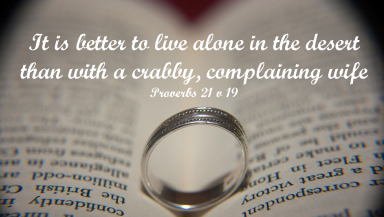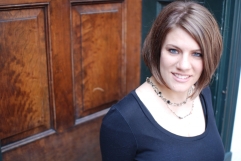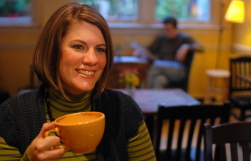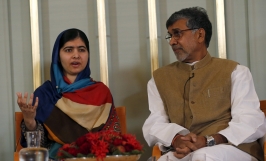
Type 'Proverbs 31 woman' into Google, and "cleaning schedule" comes up as an auto complete suggestion.
A quick search reveals a plethora of online resources (some with handy print-outs) to prescribe ways by which those who long to be the 'perfect' spouse should do everything from arrange bed linen to organise a pantry with totalitarian efficiency.
Scripture is no doubt there to help guide us, but when we start using a single verse to justify putting together a 10-point refrigerator cleaning plan ("She looketh well to the ways of her household, and eateth not the bread of idleness"), has it gone too far?
Does popping to Sainsbury's really indicate a prophetic fulfilment of Proverbs 31:14 - "She is like the merchants' ships; she bringeth her food from afar"?
Does that mean you shouldn't buy local?
Unfortunately, this seems to be just the beginning of the abuse of what is arguably one of the most misunderstood and misused passages in scripture.
Websites telling women it is their "joyful privilege" to imitate the ineffable woman set out in the last 21 verses of Proverbs litter the internet, and there are dozens, if not more, examples of Christian literature which take the passage and clumsily use it to rationalise a conservative agenda.
Try watching a 'Proverbs wife homemaking binder tour' on YouTube and follow it up with an article entitled "What are your pyjamas telling your husband?" and you get some idea of the scale of the problem.
But what actually is a Proverbs wife, and is it a helpful way to frame 'biblical womanhood'?
---
The context of the passage immediately raises questions about the legitimacy of using it as a no-questions-asked, how-to guide for women. Proverbs itself was written as a book of wisdom for men who were going to serve the King; it wasn't actually crafted with a female readership in mind.
Chapter 31 in particular is a collection of advice given to a king by his mother, which again reveals an interesting context that doesn't necessarily lend itself well to a straightforward reading of the passage as a checklist for women to tick off.
In fact, this in itself is a dangerous pursuit, says 'Jesus Feminist' author, Sarah Bessey.
"I think the real struggle is reducing humanity to what we've accomplished, and box ticking to find our value as women. It's always dangerous to take one aspect of scripture, and hold it to the exclusion of the rest of the story of scripture. The whole Bible is for us too," she explains.
"Women are also called to put on the armour of God, to be strong and courageous and to love one another, putting each other first in all ways. Those directions, ideas, values and ways we are called to bring the Kingdom of God are for women and men. When we hyper-focus on one aspect, we're missing the whole story of what it means to live out personhood."
If Bessey is right, then it's unhelpful to take verses from Proverbs 31 and see them as the standard to which women should aspire within a wildly different context than that in which they were originally written.
If we transpose verse 24 into a modern day context in the same way – "She makes linen garments and sells them, and supplies the merchants with sashes" – should we all be hand sewing clothes and peddling them at the local car boot? And who counts as merchants now – shop keepers? Door-to-door salespeople? The sandwich guy at work?
You'd be hard pressed to find many advocates for keeping the lights on 24/7 (verse 18) and yet there are many Christian women who see Proverbs 31 as a "foundational piece of instruction for [their] calling as a God fearing wife."
"There's a massive danger in anything which is about saying 'This is what it means to be a woman or a man,' whether that's about being virtuous, Godly, or being a parent," Natalie Collins, a gender justice specialist, says of this movement.
"When we prescribe gendered expectation, we reduce the humanity of every individual. It isn't Godly to reduce someone – it's idolatry to weigh being a Godly female or male above being a Godly human being. It's about how we serve God best and if that has to be restricted to our genitals, what we're born with, then there are massive problems."
Of course, Proverbs 31 isn't the only passage of scripture that has been used to justify a very specific reading of gender. Countless verses are used recklessly to underpin an implicit understanding that female identity is tied up in marriage and motherhood.
The Genesis 2:18 description of Eve as a "helpmeet" for Adam has been used to uphold the secondary status of women for centuries. This is despite the original Hebrew – "ezer" – being used throughout scripture to describe God's saving grace and strength, without any connotations of subordination.
Chine Mbubaegbu, author of 'Am I Beautiful?', says that a "passive, 'helpmeet' reading" of Proverbs 31 is therefore "dangerous because it can hold us back from fulfilling our potential – not for our own sakes, but for the kingdom of God."
"This...implies that a virtuous woman is a passive one who lets life happen to her; whose only purposes are to serve God, yes, but then to serve a husband and children. I'd say that some virtuous women are homemakers and housewives, but not all," she explains.
"Because God's called us each to different things. The women in the Bible don't all fit into some kind of cookie-cutter mould of femininity but many of them are brave, pioneering, passionate and committed to do whatever it is they're on earth to do."
How then, can Proverbs 31 be used helpfully? Is there a line between passing off obsessive rule-making as a way by which to point people to Jesus ("Every time we clean our homes we show...that redemption is a possibility") and branding an entire passage of scripture 'irrelevant'?
"When I look at that passage, I feel freedom in it. There's a lot of goodness in it, and it's a tremendous celebration of the ways women move through their lives," says Bessey.
"Being virtuous is moving through life in a way that honours God, and in the way we're created, called and purposed to through the whole of scripture. A virtuous woman is also someone who exhibits the fruits of the spirit; someone who is loving, joyful, peaceful, kind and gracious – that's a virtuous woman as much as someone who's ticking every single box of Proverbs 31.
"When we understand that virtuous means warrior...[We realise] we are called together as allies to push back the Kingdom of darkness. We are people who are hope, and that's not exclusive to a marriage relationship...We are restored as image bearers together – it includes all of us."
A feminist reading of Proverbs 31 isn't at odds with a high view of scripture, then.
"The big view of scripture embraces all that scripture is, and doesn't try to make it into something that it's not," Bessey says.
"It's a low view to create bondage and bitterness and a general sense of 'try harder and earn what God has already feely given you'...We like to baptise our preferences in sacred language instead of letting scripture stand on its own."

















